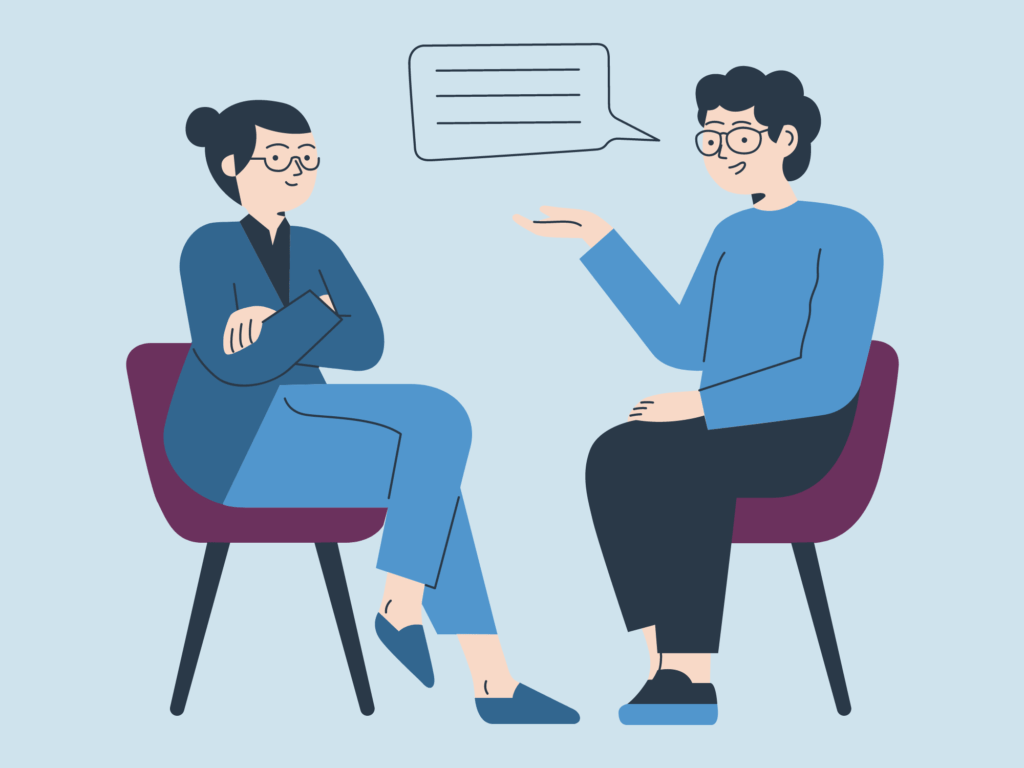Hyperactive and impulsive behaviors can significantly impact an individual’s daily life. Knowingly or unknowingly, it can be challenging to focus, concentrate, or maintain healthy relationships. However, there are effective treatments available that can help manage and reduce hyperactive and impulsive behaviors, allowing individuals to lead more fulfilling lives. In this blog, we will explore Impulsive And Hyperactive treatment options. Read on to know about behavioral therapies, medication, lifestyle changes, and alternative approaches.
Contents
What Are Hyperactivity And Impulsivity?
 Hyperactivity and impulsivity are behaviors characterized by excessive activity, restlessness, impulsiveness, and difficulty controlling impulses or emotions. They can manifest in various ways, such as excessive talking, fidgeting, interrupting, impulsive decision-making, and difficulty waiting their turn. These behaviors may be disruptive to the individual’s daily activities, including their school or work performance, relationships, and overall quality of life.
Hyperactivity and impulsivity are behaviors characterized by excessive activity, restlessness, impulsiveness, and difficulty controlling impulses or emotions. They can manifest in various ways, such as excessive talking, fidgeting, interrupting, impulsive decision-making, and difficulty waiting their turn. These behaviors may be disruptive to the individual’s daily activities, including their school or work performance, relationships, and overall quality of life.
Hyperactivity and impulsivity are often associated with ADHD, a neurodevelopmental disorder that affects both children and adults. However, other conditions and factors, such as anxiety, trauma, substance abuse, and sleep disorders, can also contribute to hyperactive and impulsive behaviors. Therefore, it is essential to identify the underlying cause of these behaviors before determining the appropriate treatment approach.
Therapeutic Treatment for Hyperactive Behaviors
Impulsive or Hyperactive Behavior Treatment may include therapy, medication, and self-care strategies as a comprehensive approach. Some commonly used behavioral therapies for hyperactivity and impulsivity include:
Behavioral Therapy
Behavioral therapy is a widely used approach in the treatment of hyperactive and impulsive behaviors. It involves identifying specific behaviors that need to be addressed and using techniques such as reinforcement, rewards, and consequences to modify those behaviors. For example, a therapist may work with an individual to develop strategies to improve self-control, reduce impulsive actions, and manage hyperactivity in different settings, such as at home, school, or in social situations.
Cognitive-Behavioral Therapy (CBT)
 Cognitive-Behavioral Therapy (CBT) is a type of therapy that focuses on the relationship between thoughts, feelings, and behaviors. It aims to identify and change negative thought patterns and behaviors that contribute to hyperactivity and impulsivity. CBT can help individuals develop coping skills, improve self-awareness, and learn strategies to manage impulsive behaviors effectively.
Cognitive-Behavioral Therapy (CBT) is a type of therapy that focuses on the relationship between thoughts, feelings, and behaviors. It aims to identify and change negative thought patterns and behaviors that contribute to hyperactivity and impulsivity. CBT can help individuals develop coping skills, improve self-awareness, and learn strategies to manage impulsive behaviors effectively.
Social Skills Training
Social skills training can be beneficial for individuals with hyperactive and impulsive behaviors, as they may struggle with social interactions due to their impulsive actions or difficulty in regulating their behaviors. It involves teaching individuals appropriate ways to communicate, interact, and respond in social situations. This can help improve their relationships with peers, teachers, and family members, and reduce impulsivity in social settings.
Parent Training
Parent training is an essential component of the treatment of hyperactive and impulsive behaviors, especially in children. It involves educating parents on effective strategies to manage their child’s behaviors, set clear expectations and boundaries, and reinforce positive behaviors. Parent training can help parents develop skills to effectively manage hyperactivity and impulsivity in their child’s everyday life.
Play Therapy
 Play therapy is a form of therapy that uses play as a means of communication and expression for children with hyperactive and impulsive behaviors. It allows children to engage in creative and imaginative play, which can help them process their thoughts and emotions in a non-threatening and non-judgmental environment. Play therapy can assist children in developing self-regulation skills, emotional awareness, and impulse control.
Play therapy is a form of therapy that uses play as a means of communication and expression for children with hyperactive and impulsive behaviors. It allows children to engage in creative and imaginative play, which can help them process their thoughts and emotions in a non-threatening and non-judgmental environment. Play therapy can assist children in developing self-regulation skills, emotional awareness, and impulse control.
Occupational Therapy
Occupational therapy focuses on helping individuals develop skills for daily living, such as self-care, managing routines, and improving sensory processing. In this, therapists can work with individuals with hyperactivity and impulsivity to develop strategies for managing sensory overload, improving self-regulation, and enhancing motor skills, which can help reduce hyperactive and impulsive behaviors.
Biofeedback
Biofeedback is a technique that involves using sensors to monitor physiological responses. Such as heart rate, breathing, and muscle tension. It also involves providing feedback to individuals to help them learn to regulate these responses. Biofeedback can help teach individuals with hyperactivity and impulsivity to self-regulate their physiological responses, which in turn can help them manage their behaviors better.
Medication Options For Hyperactive Treatment
Medication can be a crucial component of the treatment plan for hyperactivity and impulsivity, especially for individuals diagnosed with ADHD. There are several types of medications commonly prescribed to manage hyperactive and impulsive behaviors, including:
- Stimulant Medications: Stimulant medications, such as methylphenidate and amphetamine, are the most common medications for ADHD. They work by increasing dopamine and norepinephrine levels in the brain, helping to improve focus, attention, and impulse control.
- Non-Stimulant Medications: Non-stimulant medications, such as atomoxetine and guanfacine, can also help with this issue. These medications work by targeting different neurotransmitters in the brain and may be preferred for individuals who do not tolerate stimulant medications or have contraindications to their use.
Lifestyle Changes For Hyperactive Treatment
 In addition to behavioral therapies and medication, certain lifestyle changes can also help manage hyperactivity and impulsivity. These changes may include:
In addition to behavioral therapies and medication, certain lifestyle changes can also help manage hyperactivity and impulsivity. These changes may include:
- Regular Exercise: Regular physical exercise can help reduce hyperactivity and impulsive behaviors by providing an outlet for excess energy and promoting overall well-being. Engaging in activities such as sports, yoga, or other forms of physical exercise can help individuals with hyperactivity and impulsivity manage their symptoms and improve their focus and self-control.
- Healthy Diet: A well-balanced diet that is rich in nutrients, such as omega-3 fatty acids, can support brain health and may help reduce hyperactive and impulsive behaviors. Avoid foods high in sugar, caffeine, and artificial additives, which can exacerbate hyperactivity.
- Sufficient Sleep: Proper sleep is crucial for overall mental health and can significantly impact hyperactivity and impulsivity. Ensuring that individuals with hyperactivity and impulsivity get adequate and quality sleep each night can help regulate their behaviors and improve their ability to focus and control impulses during the day.
- Establishing Routine: Establishing a consistent daily routine can help individuals with hyperactivity and impulsivity manage their behaviors. Having a structured schedule that includes regular meal times, bedtime routines, and designated times for activities and homework can provide a sense of stability and predictability, which can help reduce impulsivity and hyperactivity.
Alternative Approaches
 In addition to conventional treatments, some alternative approaches may help in managing hyperactivity and impulsivity. These approaches may include:
In addition to conventional treatments, some alternative approaches may help in managing hyperactivity and impulsivity. These approaches may include:
- Mindfulness and Relaxation Techniques: Mindfulness and relaxation techniques, such as meditation, deep breathing exercises, and progressive muscle relaxation, can help individuals with hyperactivity and impulsivity improve self-awareness, reduce stress and anxiety, and enhance impulse control.
- Neurofeedback: Neurofeedback is a type of biofeedback therapy that uses real-time monitoring of brain activity to help individuals learn to regulate their brainwaves. It is effective in improving self-control, attention, and impulse control in individuals with ADHD.
- Herbal Supplements: Some herbal supplements, such as omega-3 fatty acids, zinc, and magnesium, have potential benefits in managing hyperactivity and impulsivity. However, it is important to consult with a healthcare professional before using any herbal supplements, as they can interact with other medications and may not be safe for everyone.
Conclusion
Hyperactivity and impulsivity can significantly impact an individual’s daily life, but effective treatments are available. A comprehensive approach that includes behavioral therapies, medication, lifestyle changes, and alternative approaches can help individuals with hyperactivity and impulsivity manage their symptoms and improve their overall well-being. It is important to work closely with healthcare professionals, such as psychologists, psychiatrists, and other specialists, to develop an individualized treatment plan that meets the unique needs of each individual. With the right treatment plan in place, individuals with hyperactivity and impulsivity can learn to manage their behaviors, improve their self-control, and lead more fulfilling lives.
For more information, please contact MantraCare. ADHD is a neurodevelopmental disorder involving difficulty paying attention, hyperactivity, and impulsivity. If you have any queries regarding Online ADHD Counseling experienced therapists at MantraCare can help: Book a trial ADHD therapy session.


